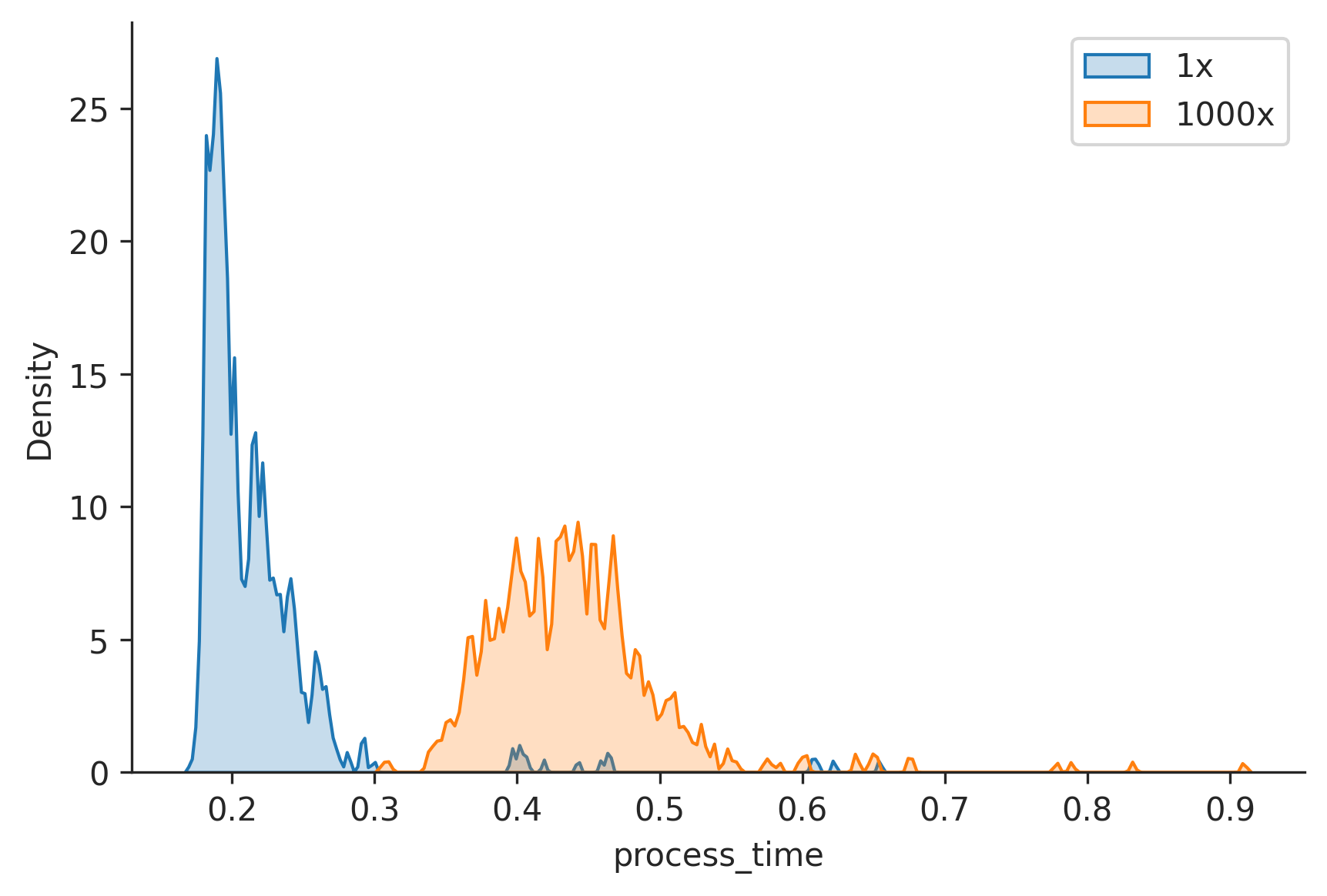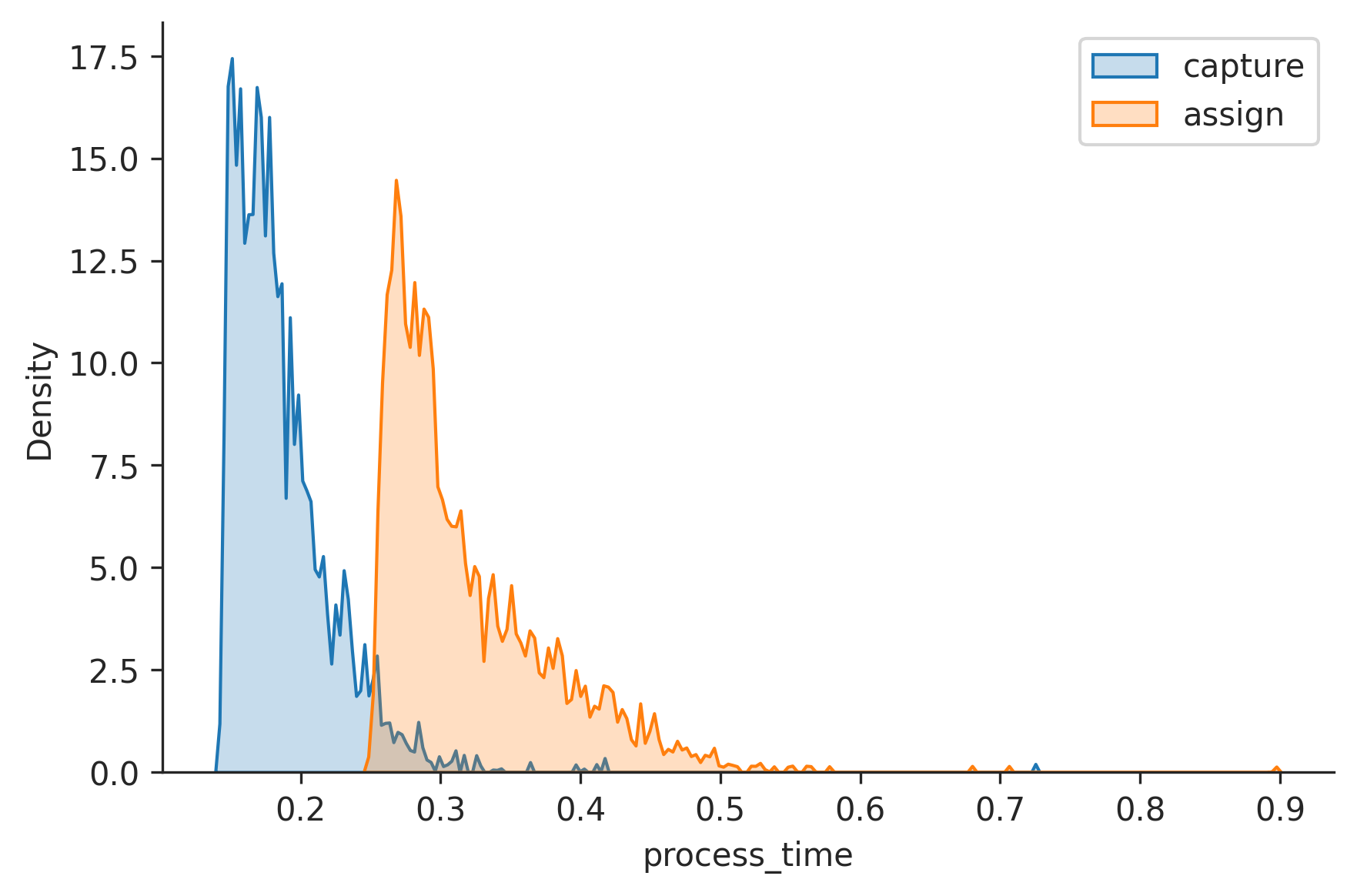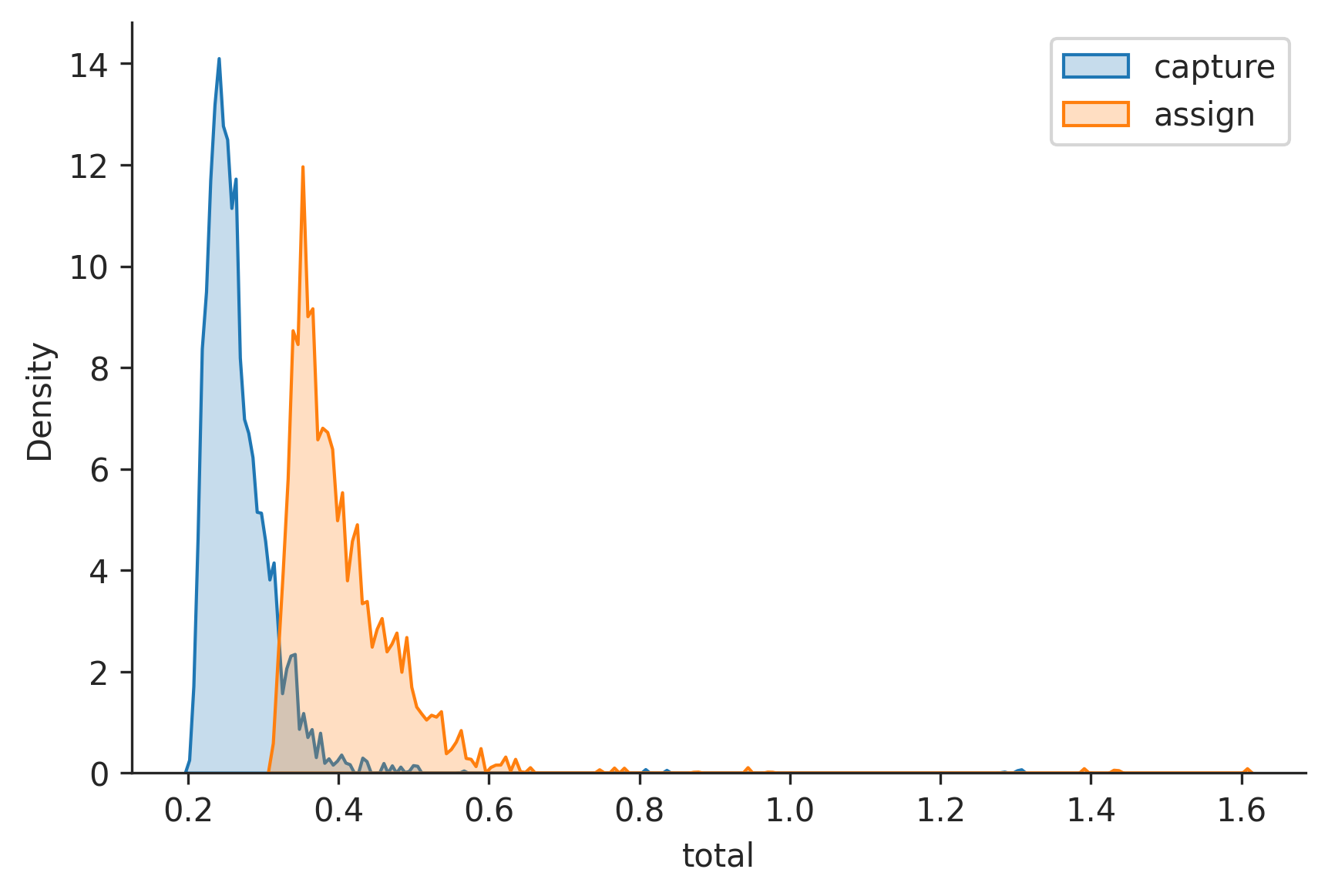Liquid Tags Performances
This is a short version to accommodate your limited attention span.
Full version here.
Introduction
In this report, we will compare two different liquid tags: assign and capture. We created two pages, one using
only capture and the other using only assign, to understand the difference between their performances.
Generating the pages
To maximize the distinction between the two results, we executed each tag as many times as possible. To do this, we
generated a section file containing 100 render snippet calls. We chose 100 because using 1000 was causing memory
errors, as shown below:

We then created one snippet for assign and one snippet for capture. Each snippet executes the tag 1000 times.
At first, we tried to use this pattern…
{% assign result = "pizza" %}{{result}}compared to this
{% capture result %}pizza{% endcapure %}{{result}}But we find out that when used without filters, assign and capture have practically the same performance.
So we adopted this pattern
{% assign temp="pizza"%}{% assign result= temp | append: "pineapple"%}{{result}}compared with
{% capture temp %}pizza{% endcapture %}{%capture result %}{{temp}}pineapple{% endcapture %}{{resutl}}The resulting snippets can be found here: assign and capture.
Data Analysis
We created a script that uses curl to measure the time taken to render the page. We executed the script 1000 times for
each page, resulting in a total of 2000 curl requests. Each curl request collected the following metrics:
pretransfer: The time, in seconds, it took from the start until the file transfer was just about to begin.starttransfer: The time, in seconds, it took from the start until the first byte was just about to be transferred. This includes thepretransfertime and the time the server needed to calculate the result.total: The total time, in seconds, that the full operation lasted.size: The total amount of bytes that were downloaded.
We are also calculating derived metrics:
process_time: The difference betweenstarttransferandpretransfer.
process_time represents the actual time it takes for the server to render the page, which is the metric we are most
interested in.
To avoid hitting the cache, a new page is created before each request.
Test Validation
Before proceeding with the actual test, we conducted a preliminary test with two pages: one with 1000 invocations
of assign and one with 0 invocations. This was done to ensure that we were not hitting the cache and to validate our
method. The following graph shows the results for process_time:

It is evident that the tests are working, and the results are consistent with our expectations (we actually made other validations to conclude that, check the full report if interested).
Test Results
- Difference in means for process_time: 0.13332 seconds (71.66%±0.02%)
- Difference in means for total: 0.13562 seconds (50.65%±0.02%)
- Difference in means for pretransfer: 0.00132 seconds (2.80%±0.01%)
- Difference in means for starttransfer: 0.13464 seconds (57.70%±0.02%)
- Difference in means for size: 0.24919 bytes (0.00%±0.00%)


Conclusion
The data is quite clear in saying that this
{% assign temp="pizza"%}{% assign result= temp | append: "pineapple"%}{{result}}is slower than this
{% capture temp %}pizza{% endcapture %}{%capture result %}{{temp}}pineapple{% endcapture %}{{resutl}}How much slower?
The resulting page is slower by 50% in total time and 70% in process_time. The absolute difference is about
0.13 seconds, which is not negligible for a server response.
So I should stop using assign?
No:
- Cache. The page request will hit the cache almost always.
- The difference is tiny. In our tests, each tag was called
100x500x2 = 100,000times and the difference is about0.14seconds. This should not be a problem in a real world template. - Favour readability. Sometimes it is not possible to use
capture, sometimesassignmakes the code cleaner. Every time you think it looks better to useassigndon’t think about a0.0000014seconds possible gain in performance.